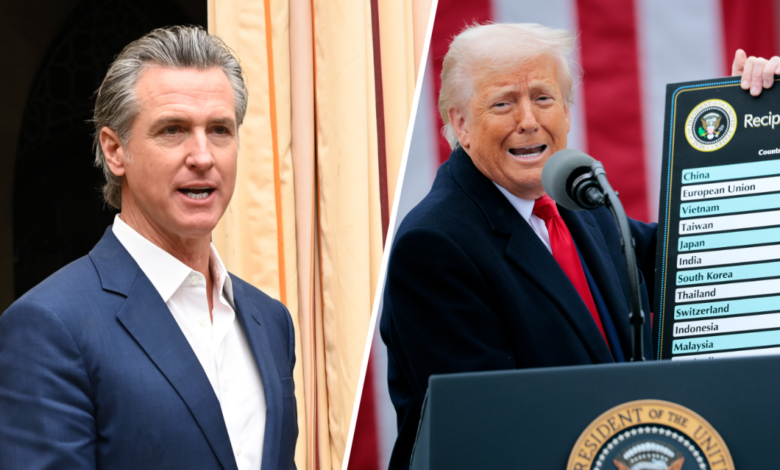California Challenges Federal Tariff Policy, Seeks Broader Trade Autonomy

Sacramento — April 4, 2025: Amid escalating global trade tensions, California Governor Gavin Newsom on Wednesday announced plans to expand the state’s direct engagement with international trading partners, marking a pointed departure from federal trade policy.
Newsom called for California-made goods to be excluded from retaliatory tariffs imposed by key trade partners, including Mexico, Canada, and China. He also instructed state agencies to explore new bilateral trade agreements designed to bolster supply chains and protect local industries from economic fallout tied to U.S. tariff measures.
The governor’s statement comes at a time when California finds itself increasingly at odds with Washington over trade strategy. While foreign policy and trade are traditionally managed by the federal government, California — with a $3.9 trillion economy — is positioning itself as a global economic player with interests distinct from those of the federal administration.
“California is not Washington, D.C.,” Newsom said during the announcement, characterizing tariffs enacted during the Trump administration as a “tax hike” that disproportionately burdens the state’s workers, farmers, and manufacturers.
Tariff Fallout Hits State Economy
Newsom’s announcement reflects growing concern about the impact of retaliatory tariffs on California’s economy, one of the largest and most trade-dependent in the country. In 2024, the state imported $491 billion worth of goods, with over 40% arriving from Mexico, Canada, and China. That same year, California exported around $183 billion — a significant portion of which was subject to new trade barriers.
These conditions have placed added strain on industries that rely on international commerce, particularly small and mid-sized exporters, agricultural producers, and manufacturers. A recent analysis by the Yale Budget Lab estimates that tariffs currently in place could raise U.S. inflation by 2.3% in 2025, with food and auto prices projected to rise by 2.8% and 8.4%, respectively. For California households, this could mean up to $3,800 in additional annual expenses.
Expanding the State’s Global Role
While Newsom’s move is limited in its legal authority, it underscores California’s growing efforts to shape its own international economic agenda. Over the past five years, the state has signed nearly 40 agreements with foreign governments on topics ranging from clean energy to digital innovation and environmental cooperation.
The new initiative seeks to extend that model to trade and economic partnerships, with an emphasis on resilience, supply chain security, and long-term growth. Administration officials say the strategy is aimed at protecting California’s unique economic interests in the face of federal policies they see as overly broad and economically damaging.
As California’s outreach expands, questions remain about the practical implications of state-led trade diplomacy. While such efforts may bolster the state’s global presence, the ultimate authority over trade still rests with Washington — setting the stage for continued tension over who gets to define America’s role in the global economy.



